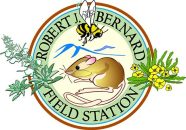Jensen, Rachel L. (1998)
Study of the Argentine Ant’s Ability to Invade Coastal Sage Scrub from Permanent Sources of Water.
Bachelor of Arts, Claremont McKenna College, Biology.
Advisor: Dan Guthrie.
Argentine ants, Linepithema humile, are an invasive pest species that have been accidentally introduced to many parts of the world. They are a problem because they disrupt arthropod fauna, particularly other species of ants. They are difficult to control because their social structure and methods of reproduction and foraging allow great flexibility in colony growth. Studies conducted by Holway (1995) and De Kock et al. (1992) found that Argentine ants were observed in the vegetation in riparian corridors, but were not found in the drier areas nearby. This study attempted to discover how far from a permanent water source the Argentine ants can colonize. It was hypothesized that L. humile would not forage beyond thirty meters from a permanent water source in coastal sage scrub. The study was conducted February 25 through March 11, 1998 on the Robert J. Bernard Field Station of the Claremont Colleges in Claremont, California. Eight sets of traps were placed along the suburban fence line and eight more were placed around the lake. The hypothesis that Argentine ant foraging decreased as distance from sources of water increased was not clearly supported by the data. The hypothesis that the ants would not forage beyond 30 meters from a water source was not supported at all. The results of my investigation supported previous work describing that native ants are reduced or are not present in areas where Argentine ants are common. However, more native species were expected to be represented in the study than were actually observed. This result suggests that the Bernard Field Station may be too small to protect native ant species from an invasion by L. humile. Many more studies must be done in order to understand the invasive abilities of L. humile and the true impact of this species on coastal sage scrub and other ecosystems invaded.
